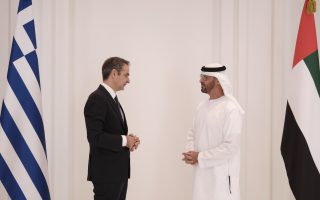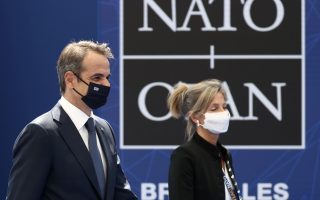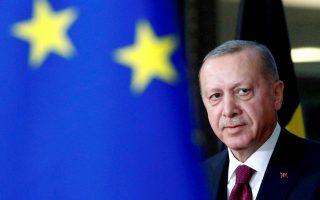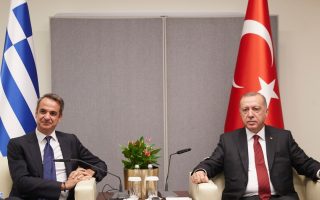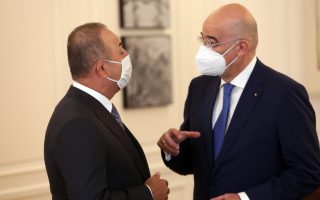A partnership short of recognition
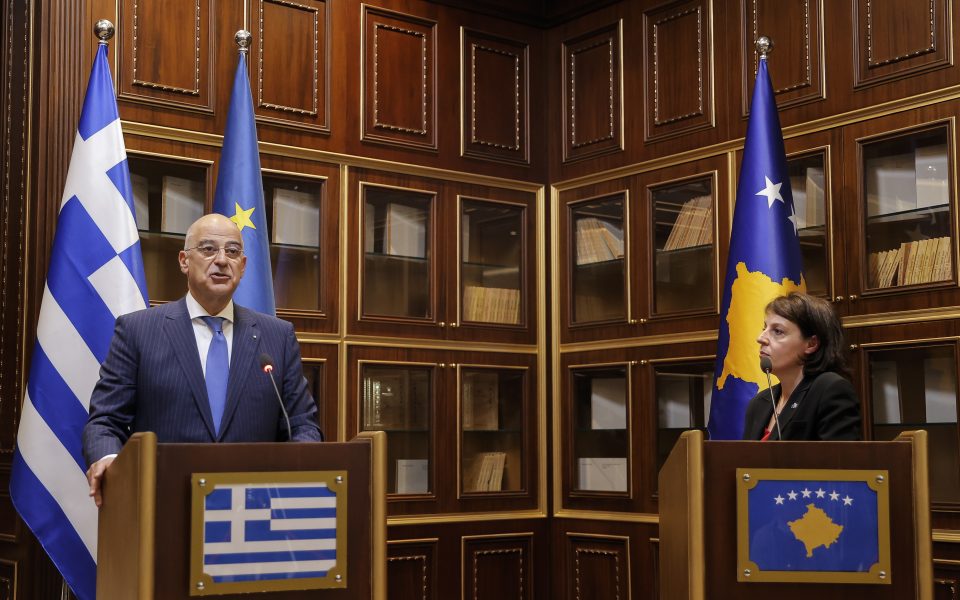
Pristina welcomed Greek Foreign Minister Nikos Dendias’ visit on June 4. It was his second visit in less than a year. His first was in September of last year, just a few days after the Washington, DC agreement between Kosovo and Serbia, on economic normalization. And the second came ahead of the continuation of the European Union-facilitated dialogue between Kosovo and Serbia in Brussels on June 15.
Greece’s position is calibrated, more symbolic than substance: the modest upgrading of the Kosovo Office in Athens, short of recognition, and reassuring Serbia that Greece has not changed its position regarding recognition. While the United States has recognized the independence of the Republic of Kosovo and has a clear position on the dialogue – “a comprehensive normalization agreement with Serbia centered on mutual recognition as essential to Kosovo’s ability to reach its full potential and move forward on its EU accession path” – the EU’s position on dialogue is vague, even though the bloc’s officials have stressed that normalization talks are fundamental in their goal of Kosovo and Serbia becoming members one day.
The position of five EU member-states (Spain, Cyprus, Romania, Slovakia and Greece), that they will recognize Kosovo after the agreement between Kosovo and Serbia, looks like a dead-end position for the agreement. Waiting for Belgrade’s consent for the independence of Kosovo, recognized by over 100 countries, gives veto power to Serbia for Kosovo’s EU integration and regional stability. Yet Greece has actively supported Kosovo. It’s evident that Kosovo is a sui generis issue and can’t be compared with the Republic of Cyprus. This was clearly stipulated by the opinion of the prestigious International Court of Justice in The Hague.
More than 20 years after Slobodan Milosevic’s genocide was stopped by NATO’s intervention, which Greece approved and supported, it is now time for Greece to officially recognize the Republic of Kosovo as an independent and sovereign country within its current frontiers. Recognition would set the stage for further expanding economic and political/security cooperation for the benefit of both Kosovo and Greece, as well as other countries in the region.
Greeks and Kosovo Albanians have historically enjoyed good relations. Historically, many Greeks studied and vacationed in Kosovo. We learned from each other, shared our common culture and values, and cultivated enduring friendships. During its transition, Kosovars have cherished cooperation with Greece as a NATO and EU member-state. Successive Greek governments supported freedom and democracy in Kosovo and in the region.
Kosovo has struggled to make progress. In the late 1980s, Serbia used force to abolish Kosovar institutions and impose the rigid rule of apartheid. In the 1990s, Serbia was aggressive toward and committed crimes against Kosovo. Through this dark time, Kosovar-Greek relations were constructive. In the early 90s Greek officials welcomed Dr Ibrahim Rugova to Greece. Dr Rugova, the chairman of the Democratic League of Kosovo, was the historic, pacifist and uncontested leader of Kosovars and the main proponent of independence for Kosovo. In return, high-level Greek officials visited Kosovo to share their perspectives on peaceful non-violent resistance. I was privileged to be a part of discussions on strengthening Kosovo’s self-governing institutions and fostering regional cooperation.
Despite Rugova’s commitment to non-violent resistance, the Kosovo Liberation Army emerged in response to increased brutality by the Serbian police, military and paramilitary forces. Greek officials were uneasy about the KLA’s emergence but supported our democratic aspirations. They urged us to resolve differences with Serbia peacefully and through negotiations. However, Milosevic was committed to a security solution and intensified Serbia’s crackdown. NATO launched airstrikes on March 24, 1999 to drive out Serbian security forces – and bring the Alliance in.
At this critical time, Greece helped stabilize Kosovo by deploying troops as part of the Kosovo Force (KFOR). Greece’s Foreign Ministry established a diplomatic presence. It supported Kosovo’s economic development by encouraging Greece businesses to benefit from Kosovo’s market. After a long international negotiation led by Nobel Peace Prize recipient Martti Ahtisaari, we finalized the Kosovo Status Settlement and declared independence on February 17, 2008. I was honored to be a signatory to Kosovo’s Declaration of Independence.
A majority of EU and NATO countries have recognized Kosovo’s independence. To date, 117 countries have established diplomatic relations.
Greece voted for Kosovo to become a member of the World Bank, International Monetary Fund and other international financial institutions. Greek officials, including its foreign ministers, visited Kosovo. Contact between parliamentarians has been extensive. Greece has recognized passports issued by the Republic of Kosovo and welcomed the establishment of Kosovo’s Office in Athens. Civil society – scholars, business leaders and cultural figures – visited Greece and were warmly received.
As President Rugova used to say, no outstanding territorial, geography, security or even history issues exist between Greece and Kosovo. We are genuinely engaged in the Kosovo-Serbia Dialogue, which is moderated by the EU, aimed at normalization and mutual recognition. As Kosovo enters the next phase of its state-building, we invite closer cooperation with Greece. Specifically, we invite the Hellenic Republic to formally recognize Kosovo and establish full diplomatic relations.
Having courageously resolved differences with the Republic of North Macedonia, Greece may now focus on improving its relations with Kosovo. I had the privilege to meet Prime Minister Kyriakos Mitsotakis as well as Foreign Minister Nikos Dendias, whom I hold in high regard. Not only will establishing diplomatic relations between Kosovo and Greece have a positive impact bilaterally, it will also have a positive impact on Greek-Albania relations and with the Albanian factor at large.
We hope that Greek leaders have the wisdom to move forward in our case. Both countries will benefit from friendly neighborly relations.
* Dr Alush Gashi, professor and author, is a signatory of the Declaration of the Independence of the Republic of Kosovo (RKS). Previously he served as senior adviser to President Ibrahim Rugova, health minister and a member of Parliament, and recently as adviser to Prime Minister Avdullah Hoti. He regularly visits Greece.
